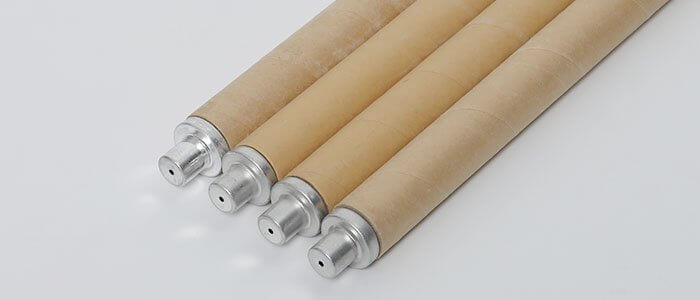Introduction
The measurement of temperature is critical in many industrial processes, including food processing, medical applications, chemical industries, and many others. The accuracy of these measurements is often essential in ensuring product quality and safety. One of the most commonly used tools in temperature measurement is the immersion thermocouple. A thermocouple is a temperature-measuring device that works on the principle of the Seebeck effect. This effect is a phenomenon where a voltage is generated when two dissimilar metals are connected at two junctions and exposed to different temperatures.
There are various types of thermocouples, including Straight Thermocouples, Tapered thermocouples, Mineral Insulated thermocouples, Quick-Immersion thermocouples, and many others. Quick immersion thermocouple (QIT) has become increasingly popular in recent years due to its fast response times, high accuracy, and easy-to-use nature. The primary focus of this article is to discuss the application of Quick-immersion thermocouples in Malaysia and analyze the scope of their use.
Quick Immersion Thermocouple: An Overview
Quick-immersion thermocouples are a type of thermocouple designed for quick temperature readings in liquid or gaseous media. They consist of two dissimilar metals, commonly Chromel-Alumel or Platinum-Rhodium, and are encased in a protective sheath, usually made from stainless steel or ceramics. The measuring junction is exposed at the tip of the thermocouple, enabling it to be inserted quickly into the medium being measured. The quick-immersion thermocouples’ fast response in measurements is made possible due to the thin layer of insulation between the measuring junction and the sheath, which allows heat to transfer from the medium to the junction rapidly.

Applications of Quick Immersion Thermocouple in Malaysia
The use of Quick-immersion thermocouples in Malaysia has been widespread and applicable in various industries. Their fast response times, high accuracy, and easy-to-use nature make them ideal temperature measuring tools for many situations. Some of the industries where QITs are commonly used include:
- Food industry: The food industry in Malaysia relies heavily on temperature measurements to ensure food safety and quality. Quick-immersion thermocouples are commonly used to measure the temperature of liquids, such as soup, sauces, and oils, among others. They are also used to monitor temperature during cooking and processing to ensure the food is cooked evenly and at the correct temperature, avoiding under or overcooking.
- Medical industry: The medical industry in Malaysia also utilizes Quick-immersion thermocouples for various applications. QITs are used to measure temperatures during procedures such as anesthesia, where an accurate reading is necessary to ensure the patient’s safety. They are also used to measure the temperature of fluids, such as blood, to ensure they are stored at the correct temperature and do not spoil.
- Petrochemical industry: The petrochemical industry in Malaysia requires temperature measurements in various applications. Quick-immersion thermocouples are commonly used to measure the temperature of liquids and gases within pipelines and tanks. They are also used to monitor the temperature of ovens and reactors to ensure the proper operating conditions.
- Automotive industry: The automotive industry in Malaysia also relies on temperature measurements in various applications. Quick-immersion thermocouples are utilized to measure temperature during engine testing and development. They are also used to ensure proper engine oil temperature, which is critical in engine performance and longevity.
- Environmental monitoring: Quick-immersion thermocouples are also used for environmental monitoring in Malaysia. They are used to measure the temperature of rivers, lakes, and streams, and monitor the temperature of soil and air in ecological research and management.
Scope of Use
The scope of using Quick-immersion thermocouples in Malaysia is vast and wide-ranging. Their high accuracy, fast response times, and easy-to-use nature make them ideal for use in many situations. Some of the areas where QITs can be applied include:
- Industrial processes: Quick-immersion thermocouples are commonly used in various industrial processes, including chemical, petrochemical, food, and automotive industries. They are utilized to measure the temperature of fluids, gases, and solids in pumps, reactors, and pipelines. They are also used in temperature-sensitive processes such as melting, casting, and forging.
- Medical applications: Quick-immersion thermocouples are increasingly being used in medical applications. They are utilized in anesthesia, surgery, clinical research, and biomedical engineering. They can be calibrated and used for temperature measurement in the clinical environment, where infection control and cross-contamination are critical.
- Environmental monitoring: Quick-immersion thermocouples have been used for environmental monitoring to measure air, soil temperature, and water temperature. They are pivotal in ecological research and management and are used to study the effect of temperature changes on plants, animals, and microbial populations.
- Agriculture and horticulture: Quick-immersion thermocouples can be used to measure the temperature of soil and air, making them ideal for agricultural and horticultural applications. They can be used to measure soil temperature and the temperature of controlled environment facilities such as greenhouses.
Conclusion
Quick-immersion thermocouples have become increasingly prevalent in many industries in Malaysia due to their high accuracy, fast response times, and easy-to-use nature. They are typically used in industrial processes, medical applications, environmental monitoring, agriculture, and horticulture. The scope of their use is vast and wide-ranging, with potential applications in many other areas. It is essential to emphasize the importance of proper calibration and regular maintenance of Quick-immersion thermocouples to ensure reliable temperature measurements. Their use continues to grow in Malaysia, and they have become a trusted tool for temperature measurement and control in many applications.


